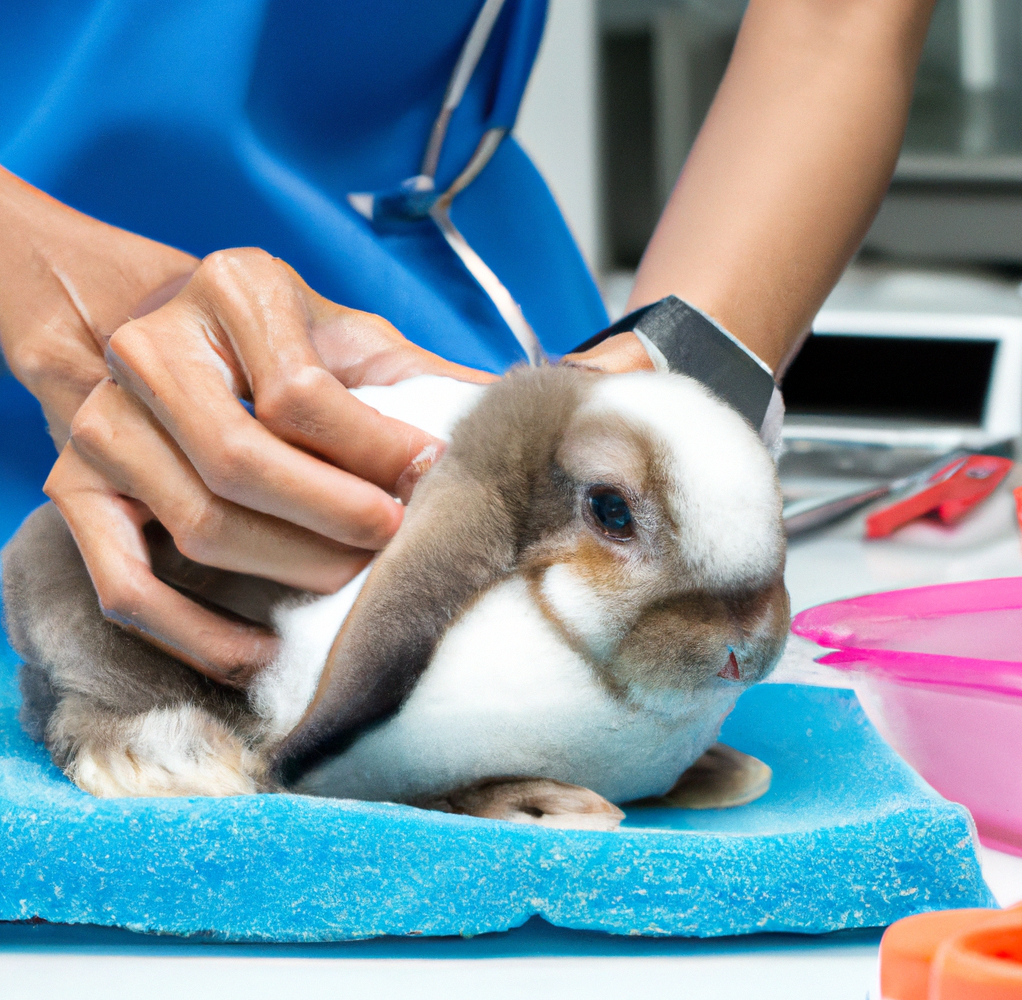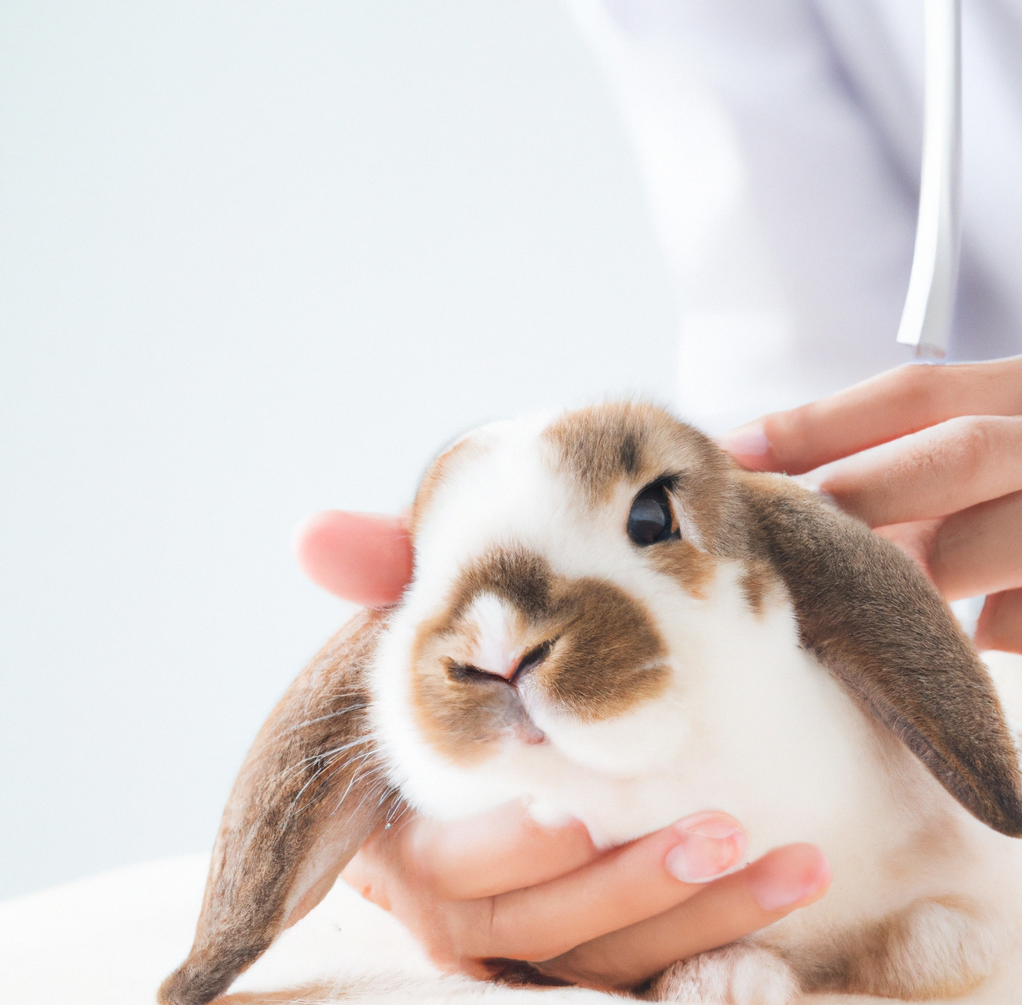If your pet rabbit is in pain, you may be wondering what you can do to treat it. You may be tempted to give your rabbit medication that is made for humans, but this is not recommended. It is important to know the best options for treating pain in rabbits so that you can provide the proper care for your furry friend. This article will discuss what you can give a rabbit for pain and the best methods for treating pain in your pet rabbit.
What Natural Remedies Can You Use to Comfort a Rabbit in Pain?
There are several natural remedies that can be used to provide comfort and relief to a rabbit suffering from pain. The first step is to determine the source of the pain, as this will help inform which natural remedies may be most effective.
One remedy is the use of herbs. Herbs such as chamomile, yarrow, and St. John’s wort have been shown to help reduce inflammation and ease pain. These herbs can be prepared in a tea or tincture and administered to the rabbit orally or applied topically.
Aromatherapy is another option for providing relief to a rabbit in pain. Essential oils such as lavender, chamomile, and peppermint can be used to soothe and relax the rabbit. These oils can be diffused in the rabbit’s environment or diluted with a carrier oil and applied topically.
Homeopathic remedies are also an option. Arnica, a homeopathic remedy, is often recommended for pain relief in rabbits. It can be administered orally or topically depending on the severity of the pain.
Finally, acupuncture has been shown to be an effective remedy for pain relief in rabbits. Acupuncture involves the placement of tiny needles in specific areas of the body to release endorphins and reduce inflammation. It is best to have an experienced practitioner perform this therapy to ensure the safety of the rabbit.
These natural remedies can provide comfort and relief to a rabbit suffering from pain. However, if the pain persists, it is important to seek veterinary care as this may indicate a more serious underlying condition.
How to Give a Rabbit Pain Medication Safely and Effectively
When it comes to giving pain medication to a rabbit, it is important to do so safely and effectively. The following steps outline how to do so.
First, make sure that you have the correct medication and dosage for your rabbit. Talk to your veterinarian to determine if the medication you have is appropriate for your rabbit and what the correct dosage should be.
Second, give the medication to your rabbit in an appropriate way. Some medications can be mixed with food or given directly into the mouth, while others may require injection. Follow the instructions on the medication or talk to your veterinarian to ensure that you are giving the medication in the correct way.
Third, use protective measures to keep your rabbit safe. Wear gloves and a face mask when handling the medication, and wash your hands thoroughly afterwards. Make sure your rabbit is in a secure, calm environment that is free from distractions.
Finally, monitor your rabbit for any adverse reactions. If your rabbit is showing any signs of discomfort or distress, contact your veterinarian immediately.
By following these steps, you can ensure that your rabbit is receiving the pain medication safely and effectively.
What Types of Over-the-Counter Pain Medications Are Safe for Rabbits?

Rabbits, like all animals, experience pain and require medications when they are ill or injured. However, it is important to be aware that rabbits have very sensitive digestive systems and are prone to gastrointestinal stasis, which is a condition in which the digestive system slows down or stops functioning altogether. For this reason, over-the-counter (OTC) medications should be used with caution and only under the guidance of a veterinarian.
OTC pain medications that are safe to use in rabbits include acetaminophen (Tylenol) and ibuprofen (Advil). However, both of these medications should be used sparingly and in lower doses than recommended for humans. Additionally, both medications can have adverse effects on the liver, as rabbits are very sensitive to drugs. As such, it is important to consult a veterinarian before administering any medications to a rabbit.
Other OTC medications that may be used to provide relief from pain in rabbits include glucosamine and chondroitin supplements, which can help relieve joint pain and improve mobility. Additionally, some studies have shown that certain herbal supplements such as chamomile and valerian root can be used to provide relief from pain in rabbits.
Finally, it is important to note that OTC medications should never be used as a substitute for veterinary care. If a rabbit is experiencing pain, it is best to seek medical attention from a veterinarian in order to diagnose the source of the pain and determine the best course of treatment.
How to Tell If Your Rabbit Is in Pain and When to See the Vet
Rabbits are naturally stoic creatures, so it can be hard to tell if they are in pain. However, there are certain signs you can look for that indicate that your rabbit may be in pain and in need of medical attention. It is important to be aware of these signs so you can get your rabbit the help they need.
The most common signs of pain in rabbits are a decrease in appetite, lethargy, difficulty moving, and changes in their behavior. If your rabbit is not eating, moving less, or is suddenly more aggressive, this may be a sign that they are in pain. Other signs of pain include heavy or shallow breathing, grinding their teeth, and a hunched posture.
It is important to take your rabbit to the vet if they are displaying any of these signs of pain. The vet will be able to properly diagnose the cause of the pain and provide your rabbit with the necessary treatment. They may also recommend pain medications or other treatments to help manage your rabbit’s pain.
If you suspect your rabbit is in pain, it is important to act quickly. The sooner you get your rabbit to the vet, the better. Prompt treatment can help your rabbit recover more quickly and can also prevent any further complications.
What to Do If Your Rabbit Won’t Take Their Pain Medication
If your rabbit is not taking their prescribed pain medication, there are a few steps you can take to ensure they receive the necessary treatment.
First, talk to your vet. They may be able to suggest alternate ways to administer the medication, such as adding it to food or mixing it with a favorite treat. It may also be necessary to administer the medication in a different form, such as a liquid or injection.
Second, try to make the medication more palatable. You can mix it with something that your rabbit enjoys, such as favorite fruits or vegetables. If the medication is a powder, you may be able to dissolve it in water.
Third, try using positive reinforcement to encourage your rabbit to take the medication. Offer rewards such as a treat or a special toy after they take their medicine.
Finally, if all else fails, your vet may be able to sedate your rabbit in order to administer the medication. This should be a last resort, as it can be stressful for your rabbit.
By following these tips, you should be able to ensure that your rabbit receives the pain medication they need.
How Treating Pain in Rabbits Is Different from Treating Pain in Other Animals
Pain in rabbits is a complex phenomenon and the treatment of pain in rabbits is quite different from the treatment of pain in other animals.
Rabbits are unique in several aspects when it comes to pain, including the fact that they do not vocalize or display many of the outward signs of pain that are typically seen in other species. This means that pain in rabbits is often under-recognized and under-treated, leading to prolonged suffering.
In addition, rabbits are very sensitive to certain types of drugs, including opioids and non-steroidal anti-inflammatory drugs (NSAIDs). These drugs can be toxic to rabbits, even at very low doses, and should only be used with extreme caution and only when absolutely necessary.
Rabbits also have a unique physiology that makes them more prone to certain types of pain and more resistant to others. For example, rabbits are very sensitive to thermal pain, which is pain caused by extreme temperatures. This means that rabbits should be kept in a temperature-controlled environment and should have access to cool areas during hot weather.
Finally, rabbits have a very sensitive digestive system, which can be easily disrupted by certain medications. As such, pain relief for rabbits should focus on non-pharmacological, or non-drug-based, treatments such as exercise and environmental enrichment.
Overall, treating pain in rabbits is a complex issue that requires a careful and thoughtful approach. It is important to recognize the unique physiology of rabbits and to use medications only when absolutely necessary. Additionally, non-pharmacological treatments such as exercise and environmental enrichment should be employed whenever possible.
The Benefits of Integrative Pain Management for Rabbits
Integrative Pain Management (IPM) is an innovative approach to managing chronic pain in rabbits. IPM combines traditional medical treatment with alternative therapies such as physical therapy, acupuncture, massage and herbal medicine. This comprehensive approach to pain management has proven to be effective in reducing pain and improving the quality of life of rabbits suffering from chronic pain.
IPM offers many benefits for rabbits. First and foremost, it is designed to reduce pain. By using a combination of treatments, IPM can provide relief from a wide range of chronic pain conditions, including arthritis, sciatica, and joint pain. Additionally, IPM can address the underlying cause of the pain, helping to reduce the risk of further injury or illness.
IPM also offers a variety of other benefits for rabbits. For example, the use of alternative therapies can help to reduce stress, which can have a positive impact on overall health. Additionally, physical therapy can improve mobility and balance, which can help to improve the quality of life of rabbits suffering from chronic pain.
Finally, IPM can help to improve the bond between rabbits and their owners. By providing comfort and relief, IPM can help to strengthen the connection between rabbits and their owners. This is especially important for rabbits who are suffering from chronic pain, as it can provide a sense of security and comfort.
In conclusion, Integrative Pain Management provides many benefits for rabbits suffering from chronic pain. By combining traditional medical treatments with alternative therapies, IPM can effectively reduce pain, improve mobility and balance, and strengthen the bond between rabbits and their owners. For these reasons, IPM is an important treatment option for rabbits suffering from chronic pain.
The Risks of Overmedicating Rabbits in Pain

Pain medication is an important part of providing appropriate care for rabbits suffering from medical conditions. However, if not administered correctly, there can be risks associated with overmedicating rabbits in pain.
First, it is important to note that rabbits are sensitive to many of the commonly used pain medications for other animals, such as non-steroidal anti-inflammatory drugs (NSAIDs). As a result, it is important to discuss any medications with a veterinarian to ensure that they are safe for rabbits and to determine the correct dosage.
Overmedication can cause serious and potentially life-threatening side effects. These can include gastric ulceration, kidney failure, and liver toxicity. In addition, rabbits can become dependent on pain medications and may require increasingly higher doses to achieve the same effect. This can lead to further health complications and may require hospitalization for treatment.
It is also important to note that rabbits can become addicted to pain medications, leading to further health issues such as anorexia and depression. Therefore, it is important to carefully monitor the rabbit’s response to medication and adjust the dosage as required.
Finally, it is important to recognize that pain medications are not a “cure-all” for rabbits in pain. Other treatments such as physiotherapy, massage, and acupuncture may also help to alleviate pain, and should be considered alongside medication.
In summary, it is important to remember that overmedicating rabbits in pain can have serious and potentially life-threatening side effects. Therefore, it is essential to discuss medication options with a veterinarian and carefully monitor the rabbit’s response to ensure that treatment is effective and safe.
Conclusion
In conclusion, rabbits can benefit from various medications and treatments to help alleviate pain. Depending on the severity of the pain and the root cause, it is best to consult a veterinarian for a proper diagnosis and treatment plan. Over-the-counter pain medications, such as acetaminophen, ibuprofen, and aspirin, are generally not recommended for rabbits due to the risk of adverse reactions. However, there are some natural remedies, such as using cold compresses or providing a warm, comfortable environment, that may help relieve pain in rabbits.

